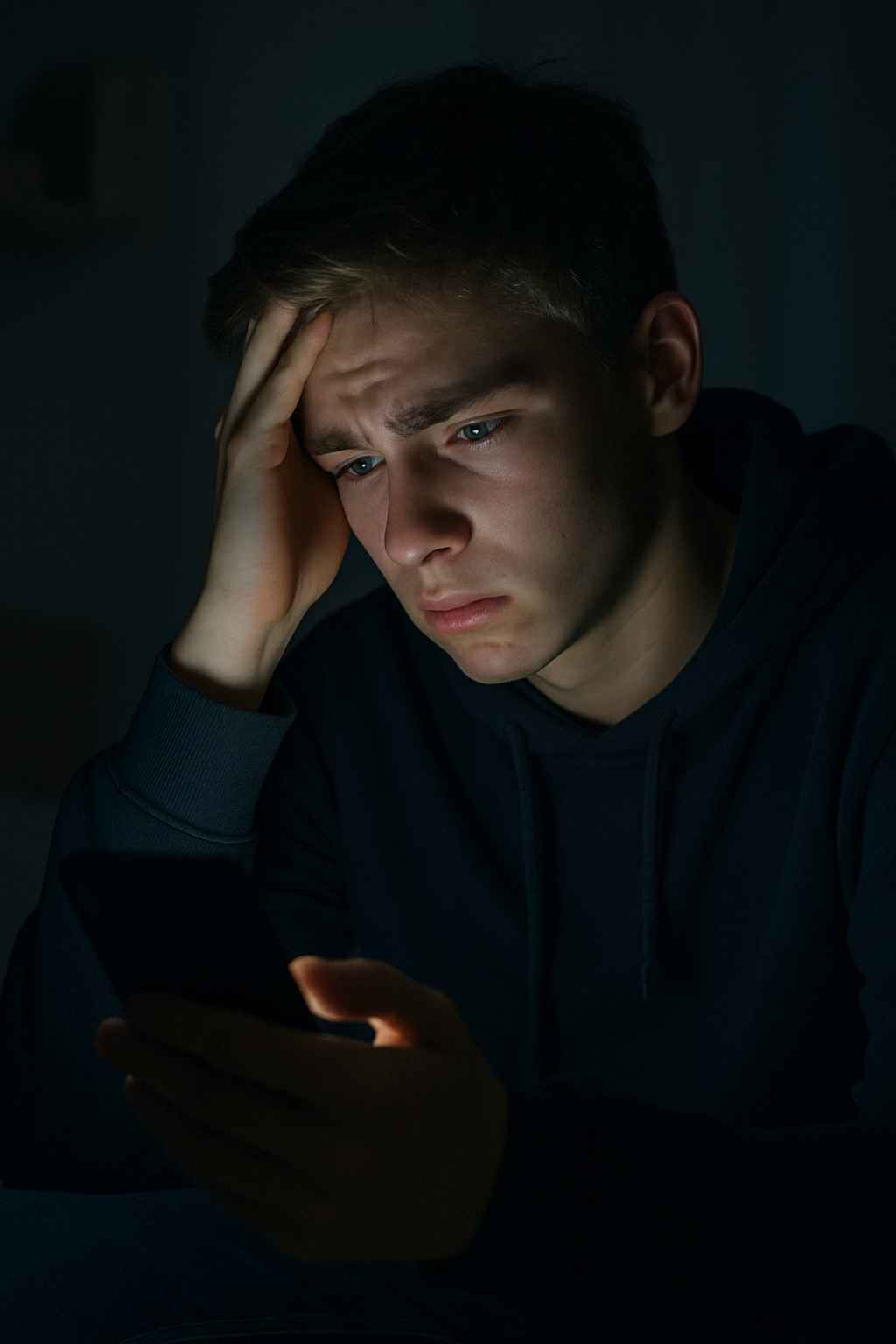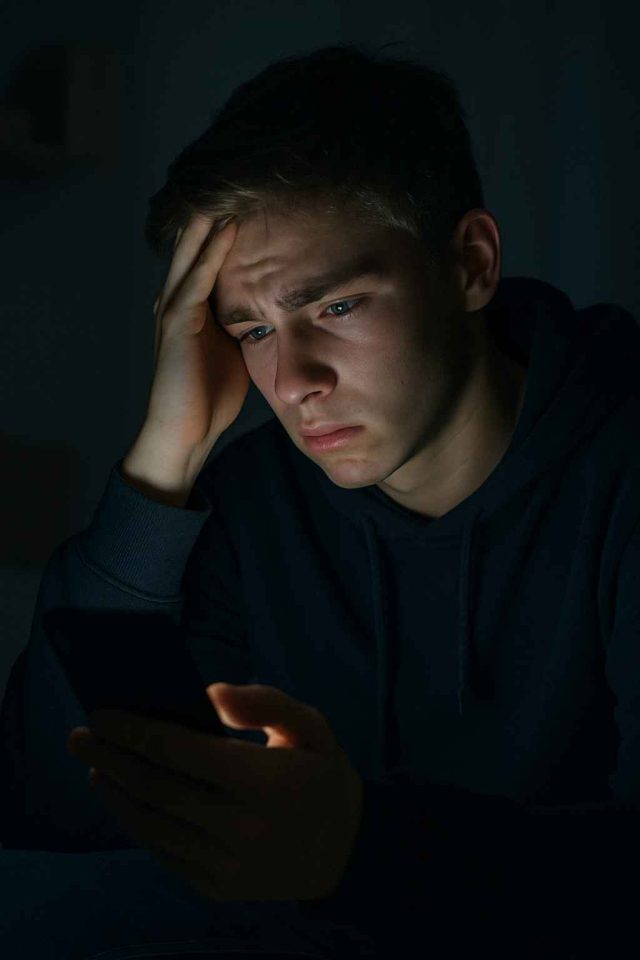
With every scroll, like, and share, our digital lives become more intertwined with our mental health. But are social media and depression truly linked—or is it all just overblown concern?
Table of Contents
- What the Research Says About Social Media and Depression
- Why Teens and Young Adults Are Most at Risk
- Algorithms, Dopamine, and the Emotional Toll
- Can Digital Detox or Mindful Use Make a Difference?
- Conclusion
- FAQs
What the Research Says About Social Media and Depression
In recent years, the conversation around social media and depression has evolved from casual speculation to evidence-backed concern. Studies increasingly indicate a correlation between excessive screen time and poor mental health, especially among teens and young adults. Platforms like Instagram, TikTok, and Snapchat are frequently cited in research exploring rising rates of anxiety, loneliness, and depression.
A 2024 Pew Research Center study found that adolescents who used social media for more than three hours per day were twice as likely to report symptoms of depression. While the data doesn’t always prove causation, the consistent patterns are difficult to ignore.
Even the U.S. Surgeon General’s Advisory on Social Media and Youth Mental Health warns about the risks of overuse, citing declining self-esteem, body image issues, and cyberbullying. These are not isolated problems—they’re becoming a widespread public health concern.
Why Teens and Young Adults Are Most at Risk
Why are younger users so vulnerable? The answer lies in brain development, peer validation, and social comparison. Teen brains are wired to seek approval, and social media amplifies this instinct with likes, shares, and comments acting as virtual rewards. It’s easy to see how scrolling through curated highlight reels can lead to unrealistic comparisons and feelings of inadequacy.
In contrast to older adults, teens often lack the emotional tools to process negative online interactions. Whether it’s passive-aggressive comments, exclusion from group chats, or seeing friends hanging out without them, these seemingly small moments can have a cumulative effect.
Pharmaceutical brands have started acknowledging these mental health trends. Prescription treatments like Zoloft (sertraline), Lexapro (escitalopram), and Wellbutrin (bupropion) have seen rising mentions in mental health discussions on social platforms. While medications can be helpful, they’re not a cure-all—and they highlight the growing demand for accessible mental health care.
For many readers, understanding these impacts can be the first step toward change. If you’re experiencing depressive symptoms, it’s important to seek professional help.
Algorithms, Dopamine, and the Emotional Toll
Social media algorithms are engineered to capture your attention—not your well-being. These platforms thrive on engagement, which means controversial, emotionally charged, or sensational content is often prioritized. Unfortunately, this type of content can trigger fear, anxiety, and helplessness.
Just like slot machines, social apps reward users with intermittent dopamine hits. A funny video, a heart emoji, or a surge in followers feels good—but the crash afterward can deepen feelings of emptiness. This cycle creates a pattern of dependence that may be especially harmful for those already dealing with mood disorders.
The “compare and despair” effect is another major factor. People rarely post about their struggles or failures, which means users constantly consume a distorted version of reality. Over time, this can lead to dissatisfaction with one’s own life, achievements, and body image.
Even well-meaning content like mental health awareness posts can backfire. While they can inspire, they also risk normalizing suffering without encouraging real action, especially if users see venting online as a substitute for therapy or treatment.
Can Digital Detox or Mindful Use Make a Difference?
Fortunately, the solution isn’t always to delete every app. For most users, mindful usage and periodic digital detoxes can be effective. Setting boundaries, turning off notifications, and tracking screen time can reduce the emotional drain.
Apps like Forest, Freedom, and Moment now help users manage their digital habits more mindfully. Meanwhile, therapy apps and virtual mental health platforms are evolving to offer support in a mobile-first world.
Moreover, the narrative is starting to shift. Influencers and brands are increasingly promoting mental wellness and transparency. Some accounts even offer guided meditations, therapy tips, or support groups, turning social media into a tool for healing instead of harm.
If you or someone you love is struggling, don’t wait. Learn more about strategies and support options in our top mental health articles.
Conclusion
The link between social media and depression is not just a trending topic—it’s a call to action. While platforms offer connection, creativity, and support, they can also foster comparison, anxiety, and mood disruption. By understanding the risks and adopting healthier digital habits, users can protect their mental health while staying connected to the world.
Social media is a tool. Like any tool, its impact depends on how we use it. Mindful scrolling, critical awareness, and community support can transform social spaces into empowering experiences.
For brands navigating this digital landscape, eHealthcare Solutions offers targeted strategies to reach audiences with empathy, trust, and relevance.
FAQs
Can social media cause depression?
While social media doesn’t directly cause depression, it can contribute to symptoms by encouraging comparison, reducing sleep, and increasing exposure to negative content.
How much social media use is too much?
Experts suggest limiting use to under two hours a day. Excessive usage, especially without purpose, may increase the risk of depression and anxiety.
What are signs that social media is affecting my mental health?
Common signs include feeling sad after scrolling, trouble sleeping, comparing yourself to others, and feeling anxious when you’re offline.
Should I quit social media altogether?
Not necessarily. For many people, mindful use and boundary-setting are enough. However, if social media consistently triggers negative emotions, taking a break may help.
Where can I find help if I feel depressed?
Always reach out to a licensed mental health provider. You can also explore options via Healthcare.pro for support.
Disclaimer
This content is not medical advice. For any health issues, always consult a healthcare professional. In an emergency, call 911 or your local emergency services.




